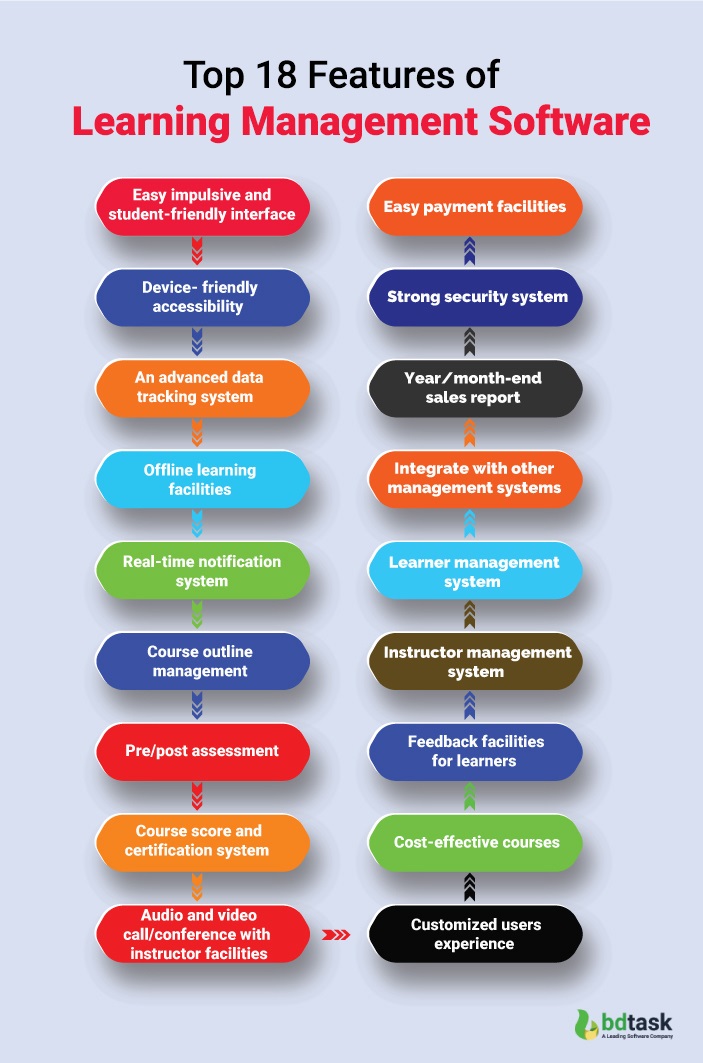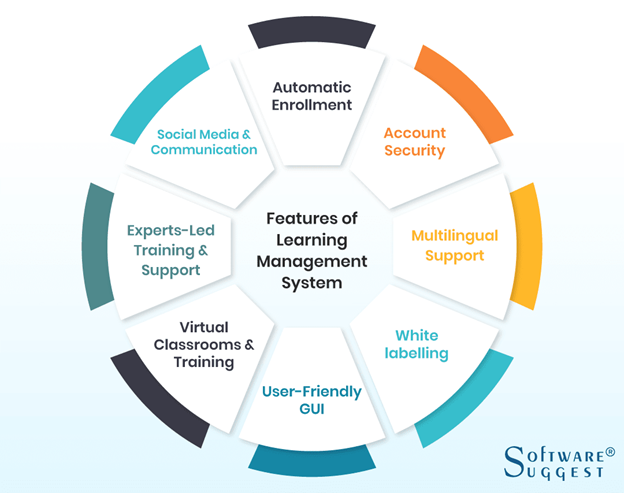Choosing the most effective Understanding Management System for Your Organization
Picking the optimum Understanding Management System (LMS) for your organization is a multifaceted choice that calls for cautious consideration of different components. From defining precise discovering goals that resonate with your calculated vision to examining customer experience, each variable plays an essential role in the overall efficiency of the system. In addition, understanding combination abilities and making certain scalability for future requirements can not be neglected. As companies pursue performance and development, the selection of an LMS comes to be increasingly considerable. What are the crucial factors to consider that can influence your decision-making procedure?
Specify Your Learning Objectives
Defining clear understanding purposes is essential for the successful implementation of a Discovering Management System (LMS) These goals work as a roadmap, guiding the development of web content, assessments, and total instructional techniques within the LMS. By developing details, quantifiable, possible, appropriate, and time-bound (SMART) goals, companies can guarantee that the knowing experiences are aligned with their calculated purposes and student demands.
Efficient discovering goals need to envelop what learners are expected to know or be able to do upon conclusion of a program or training program. This clarity not only aids in material development but also helps with the evaluation of learner development and the overall performance of the LMS. LMS SG. Well-defined objectives enable stakeholders to assess whether the picked LMS functions and performances line up with their academic goals.
Assess Customer Experience
Once discovering goals have been developed, examining user experience comes to be a vital following action in picking an ideal Knowing Administration System (LMS) Individual experience encompasses the total satisfaction and convenience with which learners connect with the system. A well-designed LMS should promote user-friendly navigating, making certain that individuals can situate programs, products, and support easily.
To evaluate customer experience, consider performing usability screening with a representative example of end-users. This can provide beneficial insights right into how students involve with the platform. Trick aspects to evaluate consist of the LMS's interface style, accessibility attributes, mobile compatibility, and the clarity of guidelines offered. Individual responses is important; accumulating surveys or carrying out meetings can reveal typical discomfort factors and locations for renovation.
In addition, review the accessibility of assistance sources, such as tutorials and aid facilities, which can enhance the user experience. The responsiveness of customer support is also important; prompt aid can significantly reduce irritations that customers might run into. Inevitably, picking an LMS that focuses on individual experience not only enhances the learning process but also fosters higher engagement and satisfaction amongst students.

Evaluate Combination Capacities
Identifying the importance of smooth capability, examining combination abilities is important when selecting a Learning Management System (LMS) An effective LMS should help with interoperability with existing systems, such as Human Resource Management Solution (HRMS), Client Connection Administration (CRM) platforms, and other instructional devices. This assimilation improves data flow, reduces management worries, and makes certain a natural knowing environment.
When assessing an LMS, consider the kinds of assimilations used. Search For Application Programming User Interfaces (APIs), Solitary Sign-On (SSO) abilities, and pre-built ports that improve assimilation procedures. Additionally, validate the LMS's capability to integrate with third-party devices, such as content check this site out collections or evaluation systems, which can significantly improve the discovering experience.

Take Into Consideration Scalability and Versatility
As organizations advance, the capability of a Learning Monitoring System (LMS) to scale and adjust becomes significantly essential. A scalable LMS can suit growth in customer numbers, course offerings, and web content without compromising efficiency or customer experience. As services expand, whether via enhanced employees, new areas, or diversified training his explanation requirements, the LMS should flawlessly grow alongside these modifications.
Flexibility is just as crucial; an efficient LMS should sustain various discovering methods, such as online, mixed, and mobile understanding. This flexibility allows companies to react quickly to emerging patterns in training and growth, guaranteeing that they can supply appealing and appropriate understanding experiences - Canvas Singapore. In addition, the system should provide adjustable attributes, making it possible for organizations to tailor the LMS to their particular needs and branding
In addition, an adaptable LMS ought to integrate easily with existing tools and platforms, promoting a natural learning ecosystem. Thus, when selecting an LMS, it is essential to evaluate not only its current capabilities but also its prospective to grow and adapt abreast with the company's critical objectives and progressing discovering needs. This foresight can dramatically improve the long-lasting practicality of the chosen LMS.
Testimonial Prices and Budgeting
When examining a Discovering Management System (LMS), reviewing prices and budgeting is necessary to make certain that the financial investment aligns with the organization's strategic purposes and financial capabilities. Organizations needs to begin by identifying the complete expense of ownership, that includes licensing fees, application expenses, upkeep, and any type of additional expenditures such as training and technical assistance.
It is vital to compare numerous LMS options, as prices versions can vary substantially among vendors. Some systems might supply a subscription-based design, while others might bill an one-time charge. Organizations needs to also think about the scalability of the LMS; as they expand, the cost structure might transform, impacting long-lasting budgeting.

Verdict
Selecting a proper Understanding Management System (LMS) is this page vital for attaining business learning goals. A thorough evaluation of user experience, combination abilities, scalability, and economic considerations guarantees that the selected LMS lines up with calculated objectives and student demands. By methodically addressing these factors, companies can improve finding out end results, promote smooth procedures, and assistance future development. Inevitably, the ideal LMS offers as an essential device in promoting an efficient knowing atmosphere and driving organizational success.
Choosing the optimum Understanding Administration System (LMS) for your organization is a multifaceted choice that needs careful factor to consider of different aspects.Specifying clear knowing objectives is crucial for the effective implementation of a Learning Monitoring System (LMS)Once discovering objectives have actually been established, reviewing individual experience becomes a crucial next action in selecting an ideal Knowing Monitoring System (LMS)As organizations evolve, the capability of a Learning Monitoring System (LMS) to scale and adjust becomes progressively important.Picking an appropriate Discovering Management System (LMS) is necessary for achieving organizational understanding objectives.